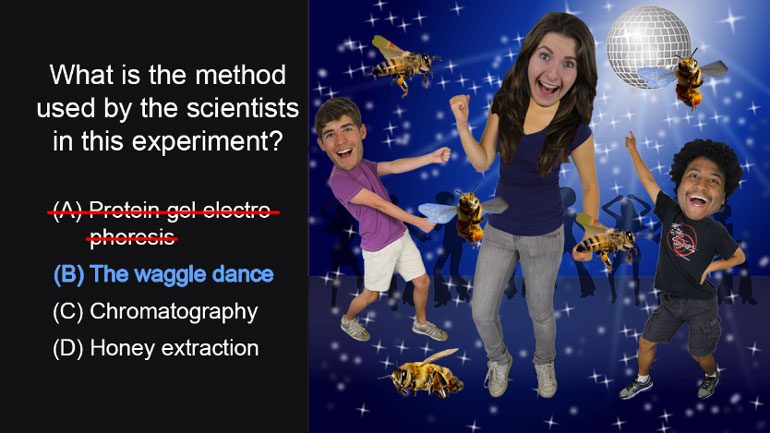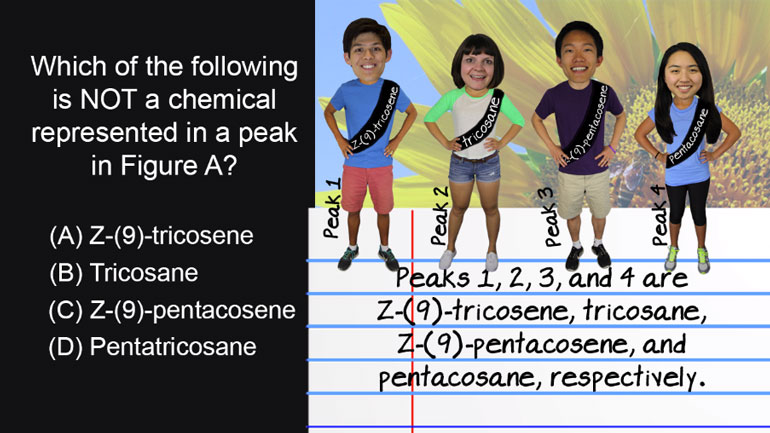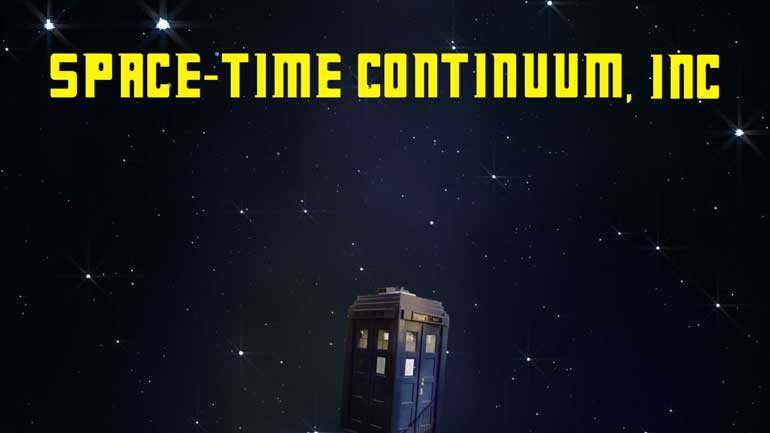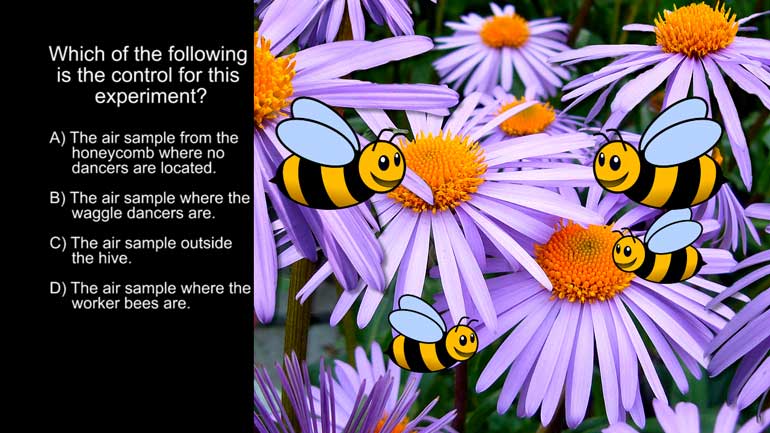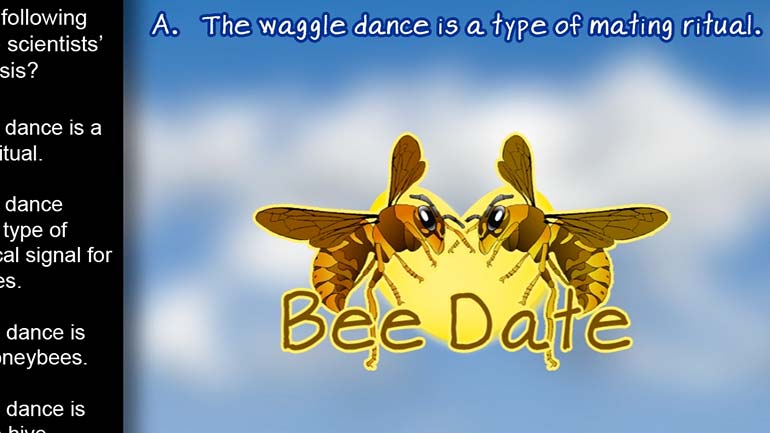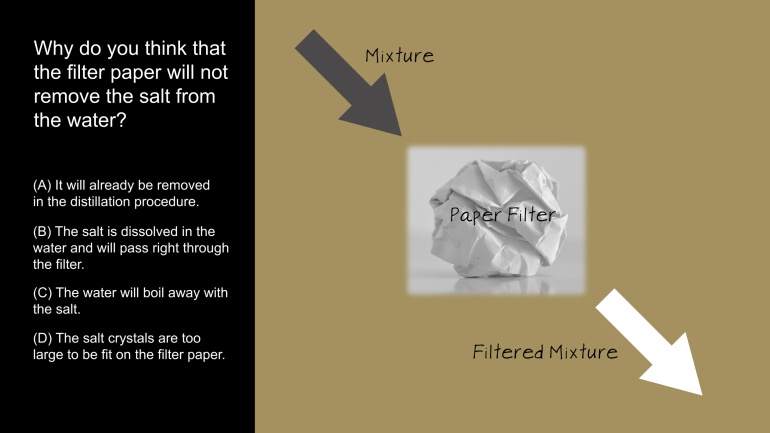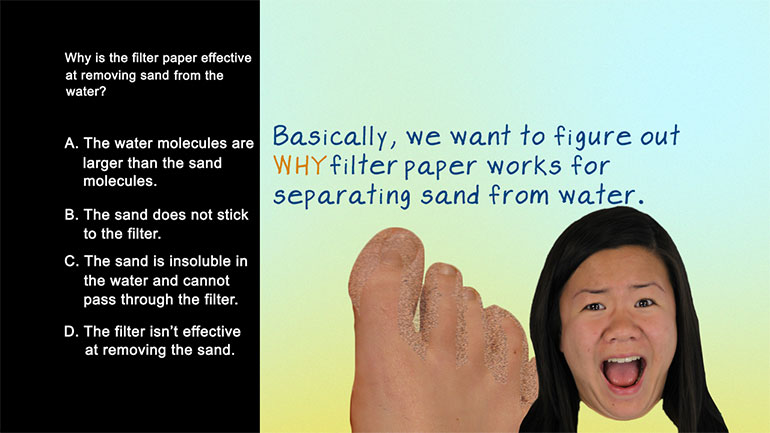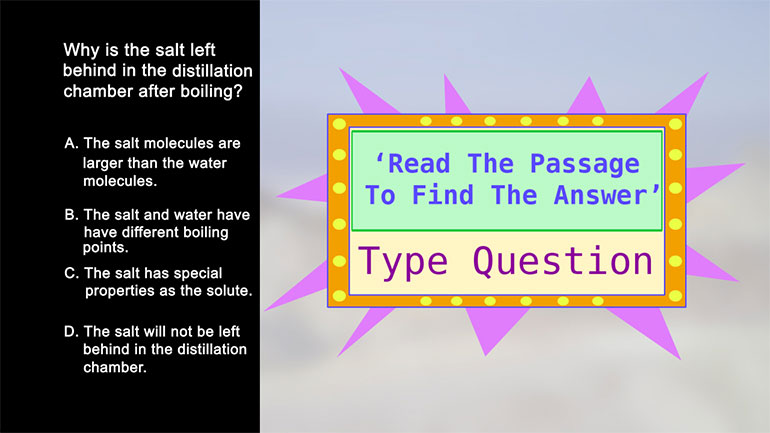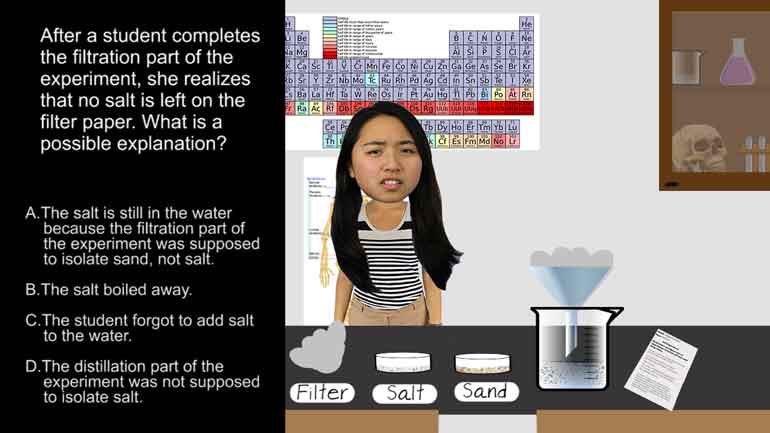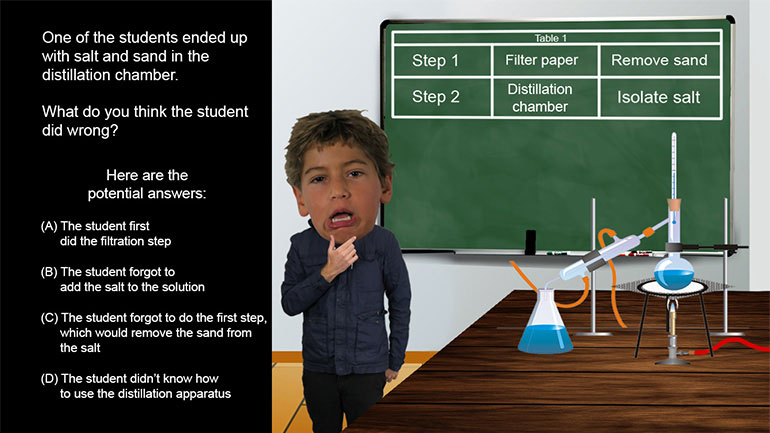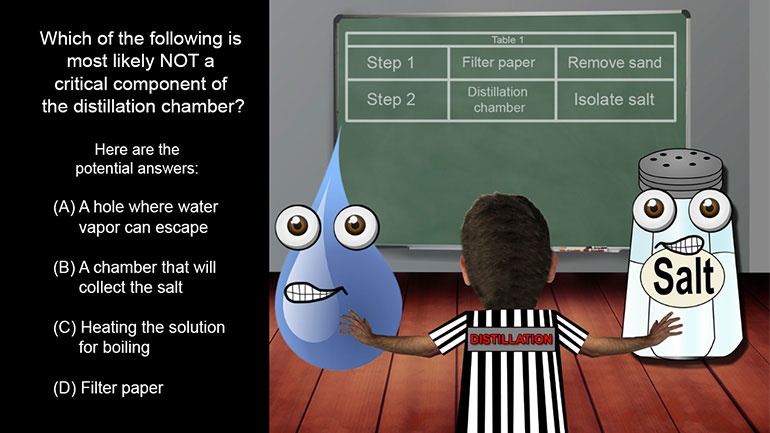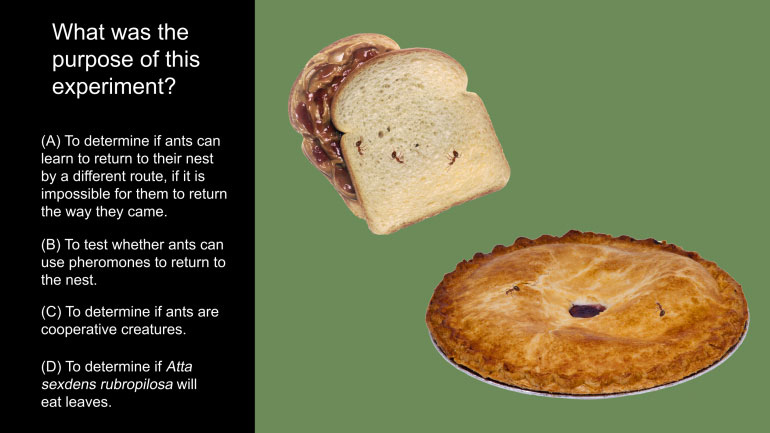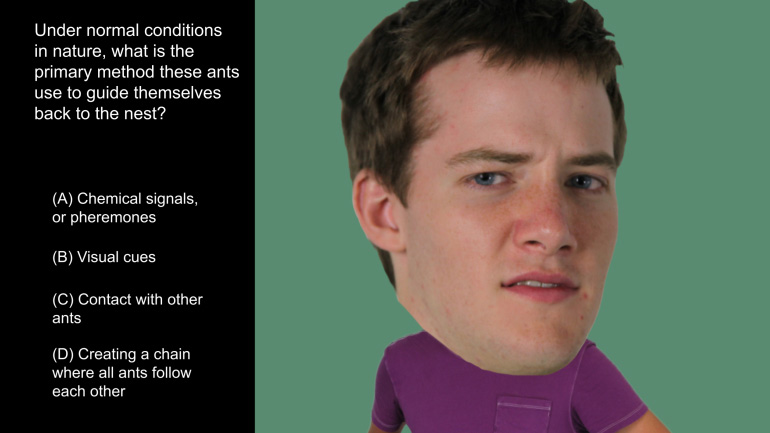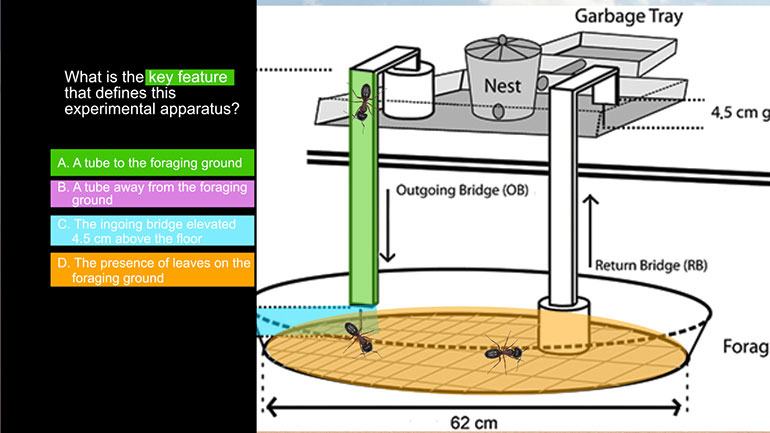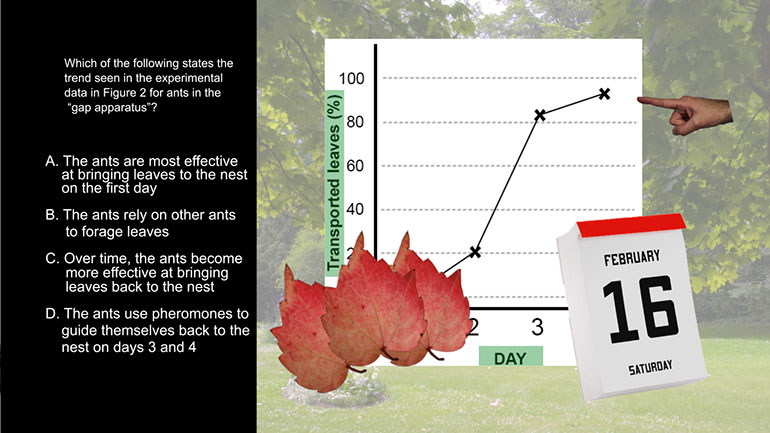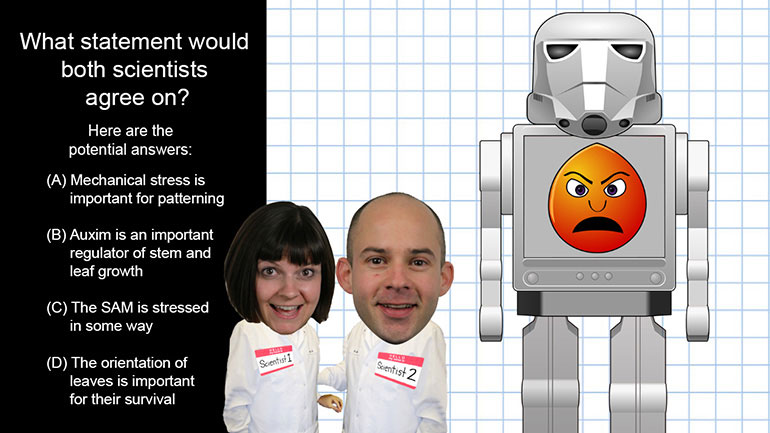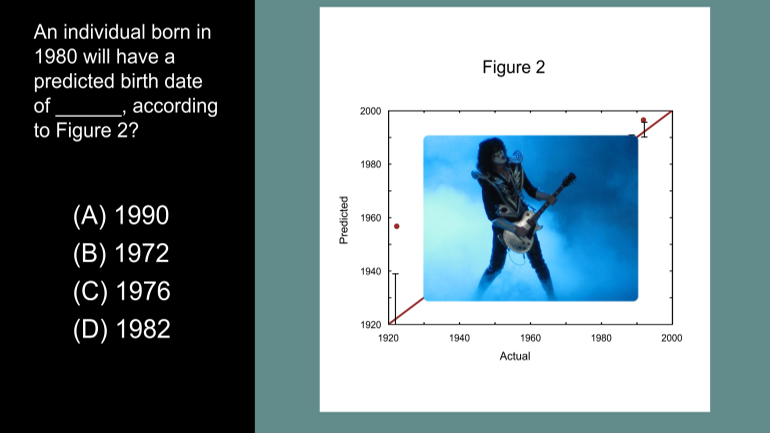ShmoopTube
Where Monty Python meets your 10th grade teacher.
Search Thousands of Shmoop Videos
Playlist ACT® Science Research Summary Passage 26 videos
ACT Science: Research Summary Passage Drill 1, Problem 1. What is the method used by the scientists in this experiment?
ACT Science: Research Summary Passage Drill 1, Problem 2. Which of the following is not a chemical represented in a peak in Figure A?
ACT Science: Research Summary Passage Drill 1, Problem 3. What is the time course of the experiment?
ACT Science 3.5 Research Summary Passage 188 Views
Share It!
Description:
ACT Science: Research Summary Passage Drill 3, Problem 5. Which of the following adaptations to the experiment would test whether the ants were using visual cues to return to the nest?
Transcript
- 00:04
Here's your shmoop du jour... with a few extra crackers...
- 00:07
A little birdie told us you just love reading about experiments.
- 00:10
Hit pause and enjoy this puppy. It's a freebie.
- 00:28
Which of the following adaptations to the experiment would test whether the ants were
- 00:31
using visual cues to return to the nest?
Full Transcript
- 00:35
And here are the potential options...
- 00:38
Here's our chance to modify the experiment! We get to PLAY GOD...
- 00:45
Those scientists had all of the fun, designing an apparatus for
- 00:48
falling ants -- now it's our turn...
- 00:50
But what exactly is the question asking us to do?
- 00:55
Looks like we need to change the experiment so that we can determine whether or not the
- 00:58
ants are using visual cues to return to the nest.
- 01:02
Hmm...key word: visual. tVisual means relating o sight...
- 01:07
...so making the gap larger, option A, doesn't do anything to test if the ants are using visual cues.
- 01:13
Don't we all close our eyes when we're falling?
- 01:17
What about B? Removing leaves from the foraging ground...well, that has nothing to do with
- 01:22
vision or returning to the nest...
- 01:24
A double negative...in this case, it does not make a positive...
- 01:27
Moving on to C. Should we repeat the same experiment in the dark?
- 01:32
Well, what's the difference between light and dark? If the ants are using visual cues,
- 01:36
then they can only see them... in the light!
- 01:39
So if we want to test the ants to find out if they're using visual cues, we should do
- 01:44
the experiment in the dark and see if the ants can get back to their nest.
- 01:48
C's our answer!
- 01:49
And if we want to look at option D...
- 01:50
removing all of the ants from the apparatus probably wouldn't help us.
- 01:54
But hey, if we're bored and feel like playing God some more...
Related Videos
ACT Science: Conflicting Viewpoint Passage Drill 1, Problem 1. What statement would both scientists agree upon?
ACT Science: Research Summary Passage Drill 2, Problem 1. Why do you think that the filter paper will not remove the salt from the water?
ACT Science Data Representation Passage: Drill 3, Problem 5. According to Figure 2, what birth date will be predicted for an individual actual...
ACT Science: Data Representation Passage Drill 1, Problem 2. Which of the following is a variable in Figure 1, but not in Figure 2?
ACT Science: Data Representation Passage Drill 1, Problem 1. What do the statistics in Figure 1 suggest?
